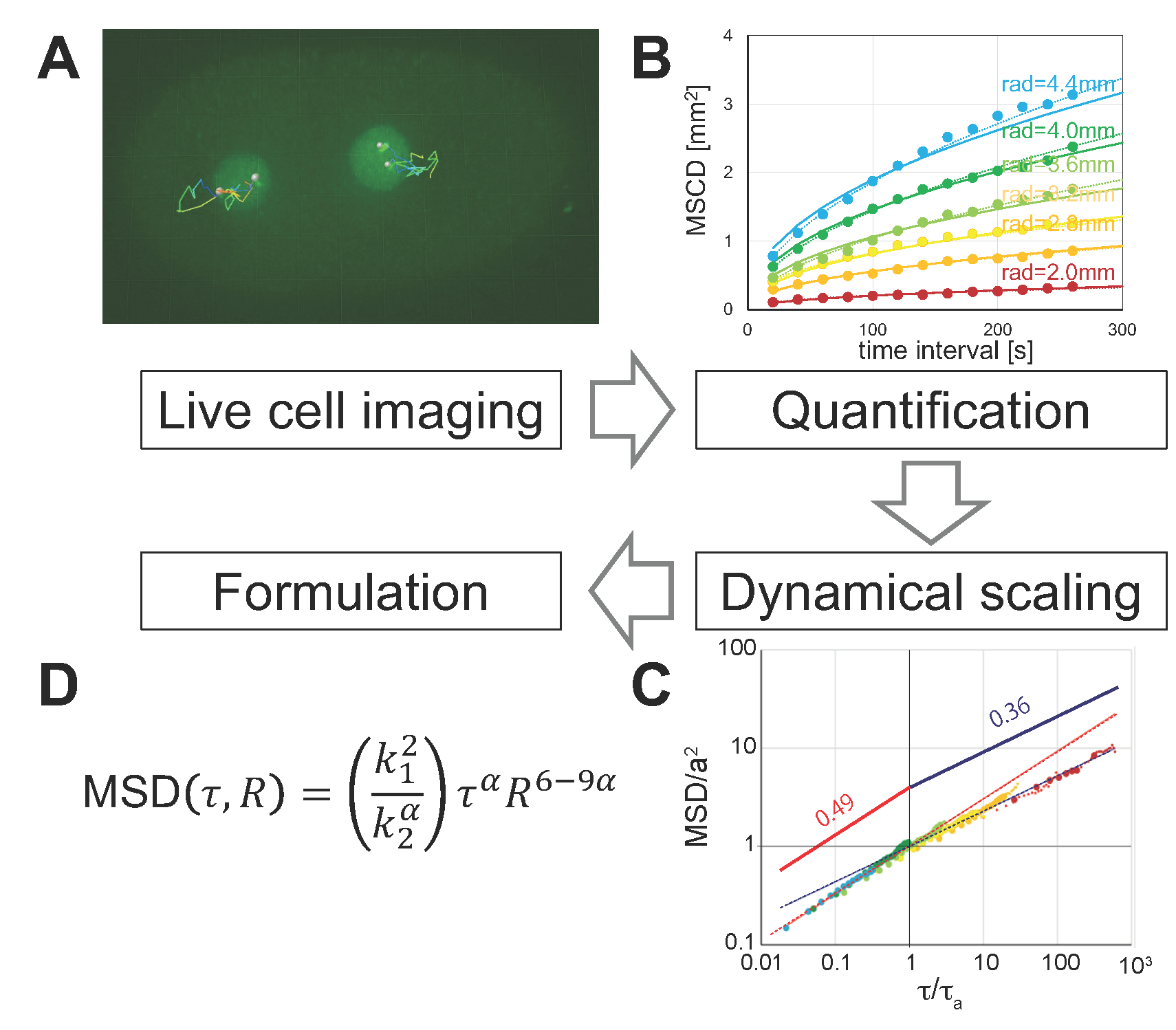2022.09.14
How do genes move in living cells?
SOKENDAI Publication Grant for Research Papers program year: 2022
YESBOLATOVA, Aiya
Formulation of chromatin mobility as a function of nuclear size during C.elegans embryogenesis using polymer physics theories.
journal: Physical Review Letters publish year: 2022
DOI: 10.1103/PhysRevLett.128.178101

(A) We first conducted live cell imaging of the nematode, Caenorhabditis elegans embryo and tracked the movement of chromosome loci. (B) The movements were quantified using the index of MSCD (mean squared change in distance), demonstrating larger movements for larger nuclei. (C) Based on a polymer physics theory, we found that the movements in various sizes of nuclei converge into single line (master curve), indicating that the dynamics of chromatin in living cells is explained by the theory in polymer physics. In the analyses, we also developed a method to convert MSCD into MSD (mean squared displacement), which is a universal index of motions. (D) We obtained a formula corresponding to the master curve. With this formula, we can describe and predict the motion of chromatin.
The chromatin dynamics is believed to play a key role in controlling the gene expression. However, its quantitative characterization has been elusive mainly due to the complexity in living cells. By combining theory and experiment, we provided unambiguous evidence that the chromatin in early embryos obeys the universal dynamics predicted by the polymer physics (see Figure). Our finding and formulation help researchers quantify the chromatin motion in living cells, thus laying the foundation for future research in this biologically important problem.
Bibliographic information of awarded paper
- Title: Formulation of chromatin mobility as a function of nuclear size during C.elegans embryogenesis using polymer physics theories.
- Authors: Aiya K. Yesbolatova, Ritsuko Arai, *Takahiro Sakaue, and *Akatsuki Kimura.
- Journal Title: Physical Review Letters 128, 178101
- Publication Year: 2022
- DOI: 10.1103/PhysRevLett.128.178101
Department of Genetics YESBOLATOVA, Aiya
My research interests include aging, chromatin mobility, machine learning and its impact on scientific advances. In my free time I teach fundamentals of programming, data analysis and machine learning at Google Developer Student Club SOKENDAI.
AY.jpeg

